Understanding Suspicious Activity
Suspicious activity can be a gray area. When someone sees something that looks strange or concerning, they may ignore it because they aren’t certain if it presents a risk or they don’t want to cause any trouble by alerting security. This is why it’s critical to educate your workforce about identifying and reporting suspicious activity and incidents so that they can be addressed.
Suspicious activity is any behavior or activity outside of the norm that may indicate a future crime or security incident. Your community knows what is normal, when someone might need help, or when something is out of place and may pose a risk. It’s important to empower employees and staff to confidently report their concerns so that the right people can look into it. Vector LiveSafe makes this easy.
Use this Toolkit to help your community better understand what suspicious activity looks like so that they feel empowered to report it.
Safety Tools
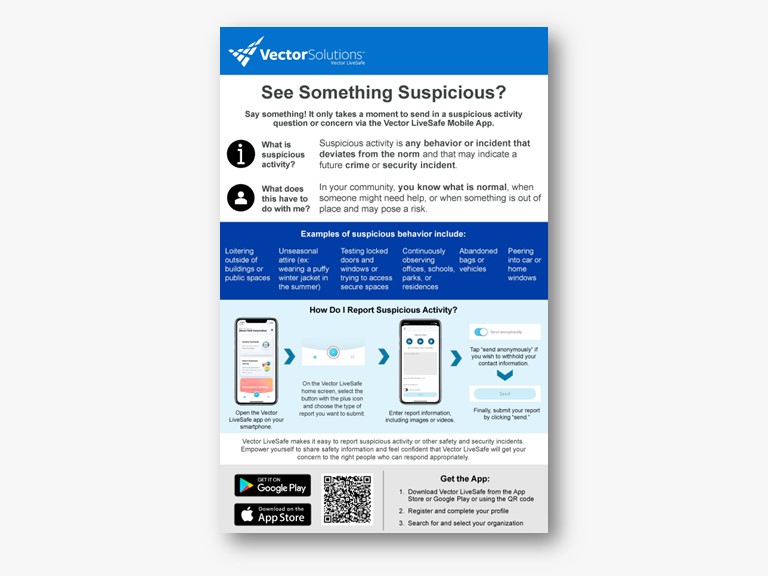
Report Suspicious Activity Infographic presents what suspicious activity is, different examples, and how Vector LiveSafe can be used to report such incidents.
Share the infographic during new employee onboarding or distribute the infographic via regular email communications to build awareness in your workforce.
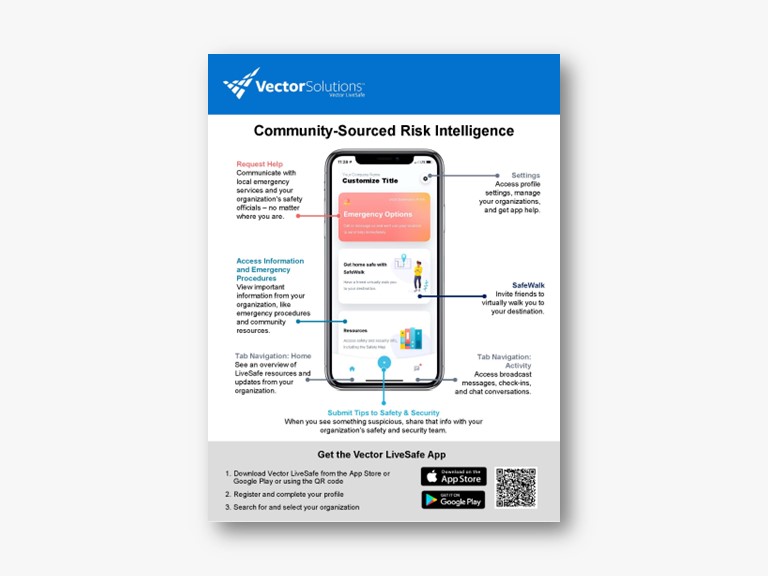
Let your organization know easy it is to use the Vector LiveSafe App directly from your mobile device.
We've made it easy for them to download the app by scanning the QR Code or finding it in their App Store.
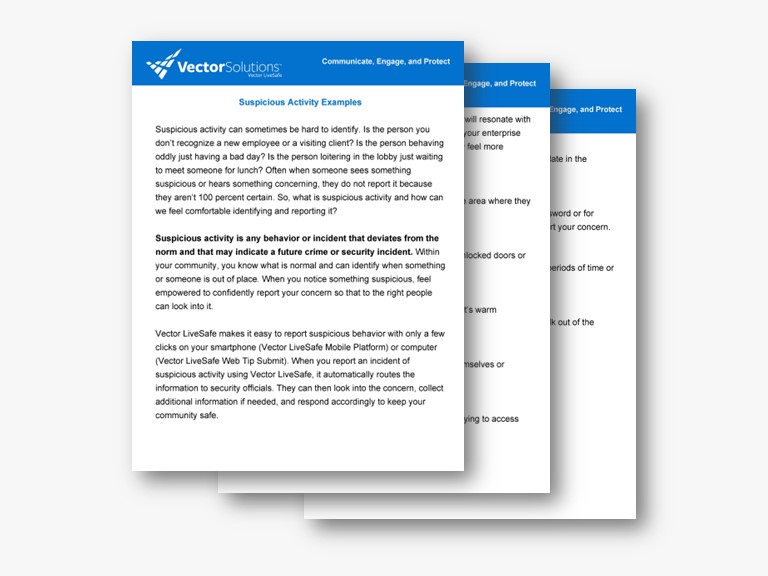
Suspicious Activity Examples provide realistic examples of suspicious activity that will resonate with your community.
Share examples of suspicious activity with your workforce via email or a company newsletter and encourage employees and staff to report anything similar on the Vector LiveSafe App.
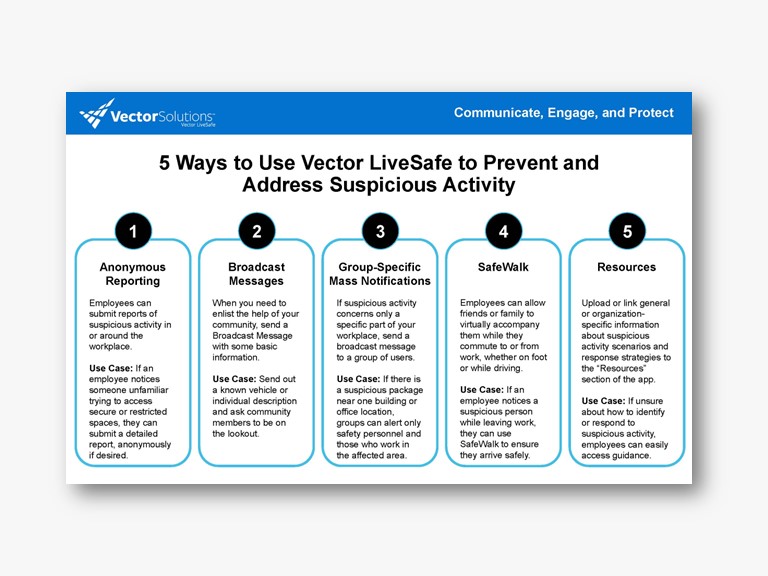
5 Ways to Use Vector LiveSafe for Suspicious Activity Infographic explains how five key features of the LiveSafe Mobile App can be used to address suspicious activity in your workplace.
Share this infographic with your organization’s LiveSafe administrators to help them understand the many ways that Vector LiveSafe can help your workforce prevent and address suspicious activity.
Tips to Protect Your Institution with Vector LiveSafe
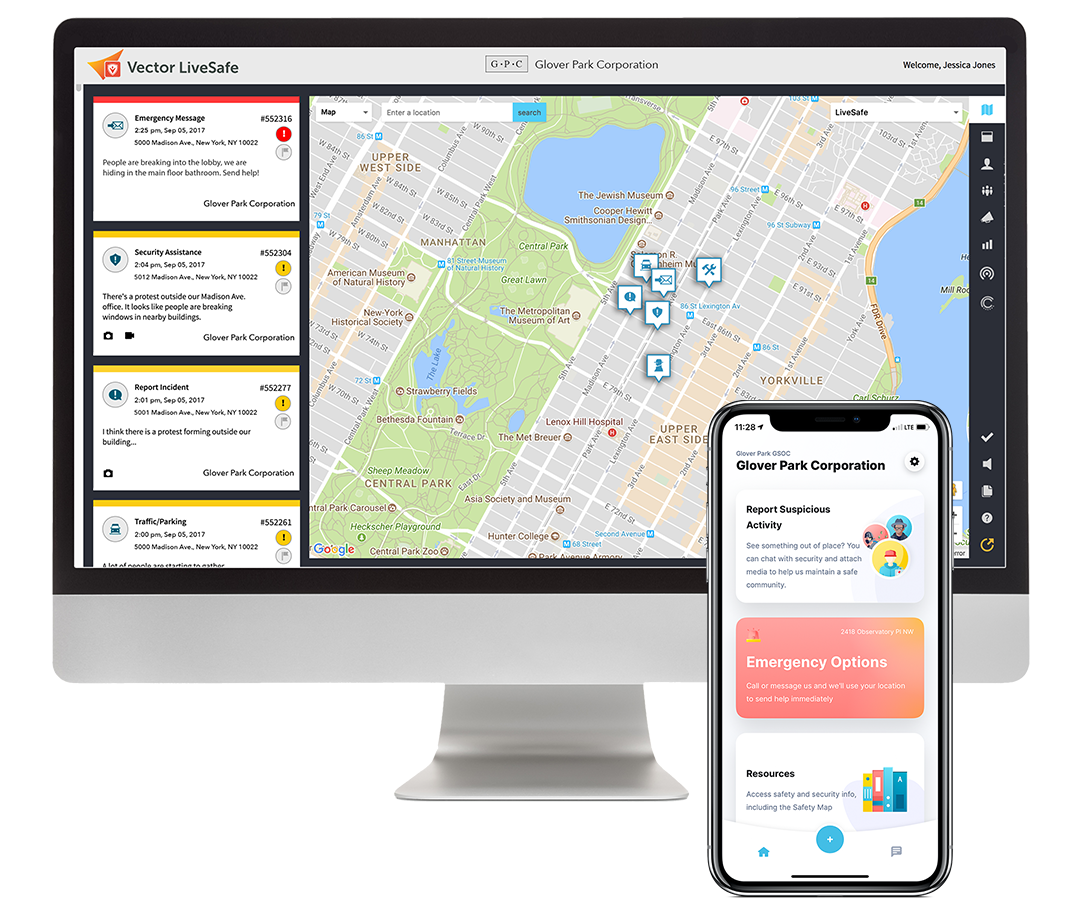
-
Empower your community to report suspicious activity and other types of safety and security incidents to protect their community by educating them about what suspicious activity or other tip types look like.
-
Remind your workforce that they can choose to remain anonymous when reporting suspicious behavior. This will help alleviate hesitations to reporting for fear of compromised personal safety, workplace confrontation, or other repercussions.
-
Send broadcast messages reminding employees and staff to report concerns of suspicious activity during large events such as conferences or workplace holiday parties.
-1.png)
